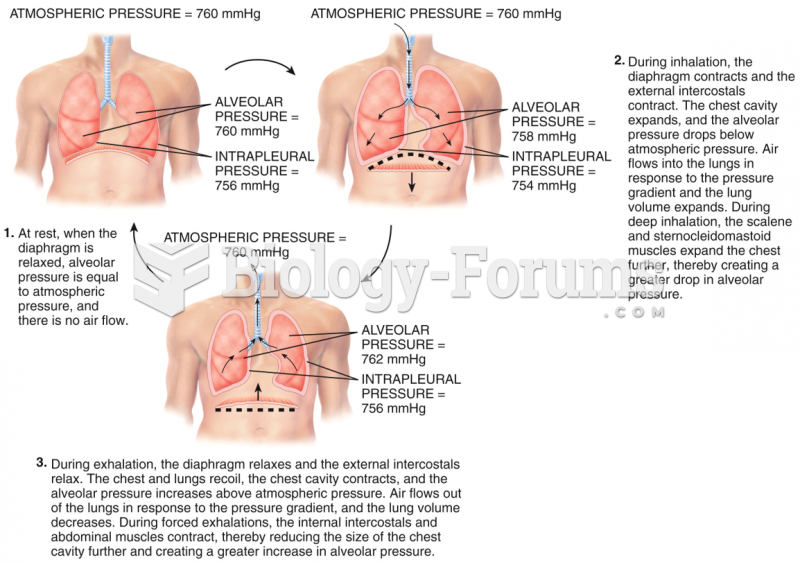|
|
|
Drug-induced pharmacodynamic effects manifested in older adults include drug-induced renal toxicity, which can be a major factor when these adults are experiencing other kidney problems.
Most childhood vaccines are 90–99% effective in preventing disease. Side effects are rarely serious.
Aspirin is the most widely used drug in the world. It has even been recognized as such by the Guinness Book of World Records.
More than 34,000 trademarked medication names and more than 10,000 generic medication names are in use in the United States.
Dogs have been used in studies to detect various cancers in human subjects. They have been trained to sniff breath samples from humans that were collected by having them breathe into special tubes. These people included 55 lung cancer patients, 31 breast cancer patients, and 83 cancer-free patients. The dogs detected 54 of the 55 lung cancer patients as having cancer, detected 28 of the 31 breast cancer patients, and gave only three false-positive results (detecting cancer in people who didn't have it).







